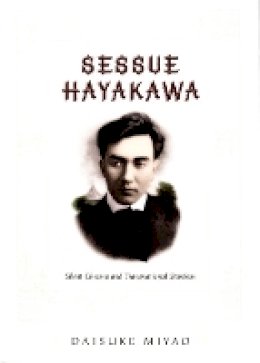
Sessue Hayakawa: Silent Cinema and Transnational Stardom
Unknown
Drawing on early-twentieth-century sources in both English and Japanese, including Japanese-language newspapers in the United States, Miyao illuminates the construction and reception of Hayakawa’s stardom as an ongoing process of cross-cultural negotiation. Hayakawa’s early work included short films about Japan that were popular with American audiences as well as spy films that played upon anxieties about Japanese nationalism. The Jesse L. Lasky production company sought to shape Hayakawa’s image by emphasizing the actor’s Japanese traits while portraying him as safely assimilated into U.S. culture. Hayakawa himself struggled to maintain his sympathetic persona while creating more complex Japanese characters that would appeal to both American and Japanese audiences. The star’s initial success with U.S. audiences created ambivalence in Japan, where some described him as traitorously Americanized and others as a positive icon of modernized Japan. This unique history of transnational silent-film stardom focuses attention on the ways that race, ethnicity, and nationality influenced the early development of the global film industry.
Product Details
About Unknown
Reviews for Sessue Hayakawa: Silent Cinema and Transnational Stardom
Sachiko Mizuno
Journal of Asian Studies
“This book is a welcome addition to the literature on Orientalism, romance and the ‘Yellow Peril’ in Hollywood cinema, which has hitherto given scant attention to Hayakawa and his significant role in the silent cinema. The author’s bilingualism, assiduous research and wide-ranging scholarship have enabled a refreshingly comprehensive account and informed analysis of the reception of the star and his films in both Japan and America.”
Freda Freiberg
Asian Studies Review
